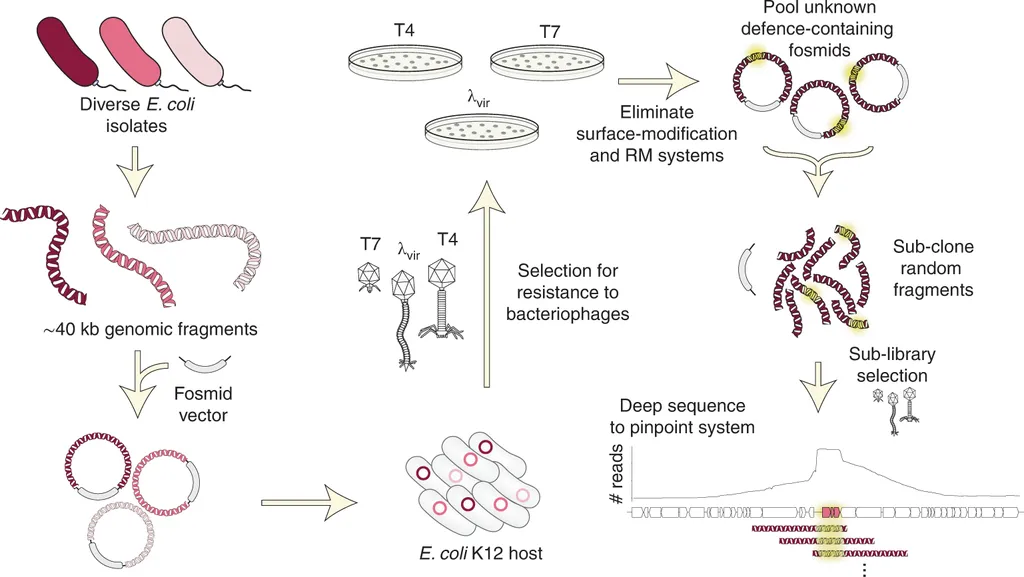In the ongoing battle against plant pathogens, a pair of newly discovered bacteriophages, PSV6 and PSV3, are emerging as promising eco-friendly warriors. These phages, isolated from wastewater, have shown significant potential in combating Pseudomonas syringae pv. syringae (Pss), a common plant-pathogenic bacterium that has long plagued the agriculture sector.
Conventional control strategies, such as fungicides and copper-based compounds, have often led to environmental toxicity and bacterial resistance. This has spurred a growing interest in bacteriophage-based biocontrol as a sustainable alternative. The recent study, led by Shengting Zhang from the School of Ethnic Medicine at Yunnan Minzu University, and published in *Frontiers in Microbiology*, sheds light on the potential of PSV6 and PSV3 as effective biocontrol agents.
The researchers found that both phages belong to the class Caudoviricetes, with PSV6 classified within Autotranscriptaviridae and PSV3 within Jondennisvirinae. Their one-step growth characteristics, as well as their thermal, pH, and solvent stabilities, were thoroughly evaluated. The host range, a critical factor for their environmental applications, was also assessed.
One of the most notable findings was the absence of virulence factors or antibiotic resistance genes in the genomes of PSV6 and PSV3. This is a significant advantage, as it reduces the risk of horizontal gene transfer and the emergence of resistant bacterial strains.
In vivo assays in Arabidopsis thaliana demonstrated that increasing phage titers enhanced biocontrol efficacy against Pss. “Treatment with both phages was more effective than treatment with PSV6 alone,” noted Zhang. Moreover, treatment with PSV3 at a multiplicity of infection of 100 exhibited the strongest preventive and therapeutic effects against Pss.
The implications of this research for the agriculture sector are substantial. As the global push for sustainable and eco-friendly practices intensifies, the development of bacteriophage-based biocontrol agents could revolutionize plant protection strategies. These phages could potentially reduce the reliance on chemical pesticides, thereby minimizing environmental impact and promoting healthier crop growth.
The study also opens up new avenues for future research. As Zhang explains, “Understanding the interactions between phages and their bacterial hosts can help us design more effective biocontrol strategies.” This could involve exploring the use of phage cocktails, optimizing application methods, and investigating the long-term effects of phage-based biocontrol on agricultural ecosystems.
In conclusion, the discovery of PSV6 and PSV3 represents a significant step forward in the quest for sustainable plant protection. As the agriculture sector continues to grapple with the challenges posed by plant pathogens, bacteriophage-based biocontrol offers a promising and eco-friendly solution. The research led by Shengting Zhang, published in *Frontiers in Microbiology*, provides valuable insights into the potential of these phages and paves the way for future developments in the field.

